
by John P. Pratt
8 Dec 2019, 13 Dragon (SR), Winter Fast (PH), 1 Chief (P), Spica (US)
©2019 by John P. Pratt. All rights Reserved.
|
1. Eternal Round: Step 4 1.1 Birth of the Natural Man 1.2 Mind, not Heart 2. Levels of Consciousness 2.1 Beta State: Living Dead 2.2 Alpha State: Aware 3. Becoming Childlike 3.1 Seven Attributes 3.2 Intuition 3.3 Pondering 3.4 Observe Children 3.5 Playfulness 4. Examples 4.1 Richard Feynman 4.2 Stalking Wolf 4.3 Joseph Smith 5. Conclusion Notes |
The Savior told his apostles that if they did not become like a little child that they would not be able to enter the Kingdom of Heaven (Mark 9:33-36, Mat. 18:3). That is an amazing statement! The apostles who would soon lead His Church might not even qualify to enter the Kingdom of Heaven! So how about you? Where do you rank on the scale of being like a little child?
 |
One sacred cycle which has been a point of interest in my work on sacred calendars is the 20-day cycle of day signs which represent the steps of life. It is one of two cycles which comprise the Sacred Round once used by nearly all Native Americans (entire Western Hemisphere). Alone that 20-day cycle is called the "veintena". Many of my articles have focused on those steps which apply to all mankind.
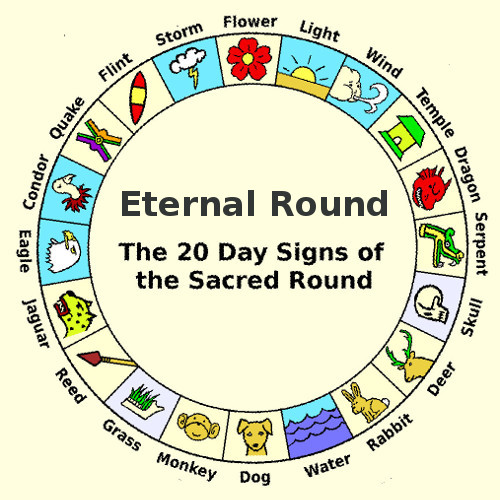 |
The first three steps on the Eternal Round are (1) Conception, when the spark of life enters the ovum, represented by the glyph "Light", (2) Quickening, when the unborn baby first moves when the cord to the psyche is attached to the body so that it has feelings, represented by Wind, and (3) birth, when the intelligence is also attached to the body, so that the infant becomes a "living soul". Birth is symbolized by the glyph "Temple", representing the body which is the temple of the intelligence and the psyche. These three steps are fairly well understood and each can be a major holy day on the Sacred Round. Great prophets are often born on these major holy days.
In contrast, the fourth day of the Eternal Round is represented by the Dragon, the symbol of evil. No major holy day ever occurs on the Sacred Round on the day Dragon. It is a day often shunned. It has never been the focus of any of my articles until now. It is called "Adult" in my articles, which should probably have been "Teenager" (seriously) because it is a natural stage of growth, usually involving breaking off from the parents and questioning everything they have been taught, as they feel the need to know truth from themselves. While that in itself is not evil, the Dragon symbolizes the day on which Satan is allow to begin to tempt that person.
 |
Behold I say unto you that this thing shall ye teach--repentance and baptism unto those who are accountable and capable of committing sin; yea, teach parents that they must repent and be baptized, and humble themselves as their little children, and they shall all be saved with their little children.
And their little children need no repentance, neither baptism. Behold, baptism is unto repentance to the fulfilling the commandments unto the remission of sins.
But little children are alive in Christ, even from the foundation of the world; if not so, God is a partial God, and also a changeable God, and a respecter to persons; for how many little children have died without baptism!
Wherefore, if little children could not be saved without baptism, these must have gone to an endless hell.
Behold I say unto you, that he that supposeth that little children need baptism is in the gall of bitterness and in the bonds of iniquity; for he hath neither faith, hope, nor charity; wherefore, should he be cut off while in the thought, he must go down to hell.
For awful is the wickedness to suppose that God saveth one child because of baptism, and the other must perish because he hath no baptism. -- Moroni 8:10-15
Thus we see that little children are saved and if their parents want to be with them in heaven, then they must "humble themselves as their little children." That is imperative, which is what led to this article being written.
Step 3 of the Eternal Round is "Birth" (with the glyph for "Temple") and a child is in the sinless state of childhood until arriving at Step 4: "Adult" (with the glyph for "Dragon"). In an earlier article[2] it was suggested that the step "Adult" represents at least two things. First, it represents attaining the age of accountability, usually around age eight (D&C 68:27). Thus, "Adult" also usually includes "Teenager". Second, this step also corresponds to the "birth of the natural man".
The Mayans made a point of stating that each of these steps occurs on a certain day in mortal life. According to them, on one day the child is not accountable and on the next day he is. What might be the marker for the transition? For example, what about those who are mentally incapable of being held accountable at any age, and yet others are just barely able to be accountable for their sins. Just where is the threshold or level that needs to be attained to be accountable?
As for the birth of the "natural man", that seems to fit perfectly with occurring on the Dragon Day of the Eternal Round. An angel explained that the natural man is an enemy to God (Mosiah 3:19), from which it indeed sounds like "Dragon" would be an excellent symbol for it.
Just what is the principal indicator that one is in the "Adult" stage of life? It is here proposed that one important indicator is that the person now puts thinking with the mind above thinking with the heart. The fully developed natural man ignores the heart completely and is always churning with his mind, "ever learning, and never able to come to the knowledge of the truth" (2 Tim. 3:7). Ask yourself if you worry or plan, trying to think of every possible worst case scenario. Have you seen young children do that? It is a wonderful skill to develop to ask one's own heart what is the right thing to do, without overanalyzing the possibilities. In fact, when one has a fully developed heart, he realizes that all decisions should be made with the heart, never with the mind. The mind is for calculating how many boards are necessary to build the chicken coop, but at the store one should buy the number given by the heart, because it knows that something was overlooked in the planning. The mind does not know enough about the unexpected to make the right decision.
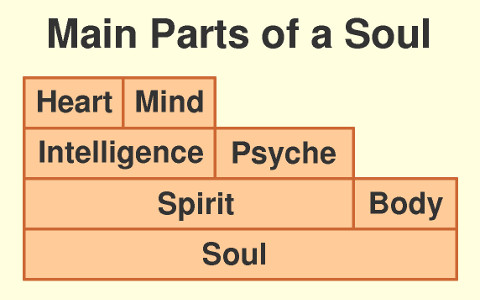 |
For whatever reason, the day Adult on the Eternal Round, the birth of the natural man, is characterized by the mind dominating the heart. The two should be equally balanced parts of an intelligence (see illustration).
A little child has a balance between mind and heart and if anything, the heart dominates. It is the heart which has faith, and it is into to the heart that the gospel seed of the word is planted (Mat. 13:19). A little child can sense truth, even if hidden in a fairy tale which the parent does not understand.
Children are open with their feelings. Universal facial expressions and body language make it clear what they are thinking and feeling. They are not inhibited, nor even concerned, about what others might think of their actions or opinions. If they are enjoying a concert, they might run up to the front and starting leading it themselves. That is, of course, until they are taught to "Grow up!", or even worse, "Act your age!" (which really means, "Don't act your age, but hide your feelings, fear the opinion others have about you, and stop having so much fun! Be phony like us adults!").
Little children are in tune with nature. The birds and mice helped Cinderella make her dress. Butterflies land on their fingers without fear. Young children can be in tune with all of nature and God's creatures.
And one of the most important aspects is that little children can often sense truth. When a father is trying to control his anger at a child who is terrified of him, he might say, "I'm not angry!" but the child can truthfully respond, "Yes you are!" They believe truths that parents don't, such as believing in magic, that the wicked witch in Snow White can turn into an old woman, and that dragons are real. That can go too far, which can lead to being gullible, meaning believing something not true, so the mind is still important even for a child not to get into the car with that stranger.
Overall children are great! They fit perfectly into heaven already!
In August of 1997 I took a one-week class from Tom Brown, the Tracker, on wilderness survival and living in nature. He had been trained for ten years in his youth by an Apache shaman named Stalking Wolf and has written nearly twenty books on the subject.
He gave one lecture in an outdoor amphitheater which compared four levels of consciousness taught to him by Stalking Wolf to the corresponding four levels known at that time to science. Here let us focus on only two.
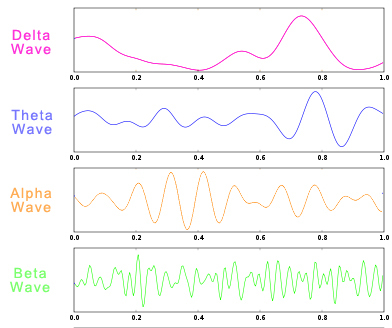 |
Neuroscientists generally agree on the attributes of four states of human consciousness which correspond to the brain emitting waves in four corresponding frequency intervals: beta waves (15-40 Hz), alpha waves (9-14 Hz), theta waves (5-8 Hz), and delta waves (1-4 Hz). Let us consider only the first two.
Scientists usually describe the beta state of mental activity as the typical adult waking state, one in which they are engaged in their work and daily activities. Here are some typical examples from three Internet sources:
"Beta brain waves are associated with normal waking consciousness and a heightened state of alertness, logic and critical reasoning. As you go about your daily activities you are at Beta. Although important for effectively functioning in everyday life, higher Beta levels translate into stress, anxiety and restlessness. With the majority of adults primarily operating at Beta during their waking hours it is little wonder that stress is today's most common health problem. The voice of Beta is the little nagging chatterbox of your inner critic, which becomes louder and more relentless the higher you go in the range."[4]
"Beta waves are characteristics of a strongly engaged mind. A person in active conversation would be in beta. A debater would be in high beta. A person making a speech, or a teacher, or a talk show host would all be in beta when they are engaged in their work."[5]
"Beta brainwaves dominate our normal waking state of consciousness when attention is directed towards cognitive tasks and the outside world. Beta is a 'fast' activity, present when we are alert, attentive, engaged in problem solving, judgment, decision making, or focused mental activity."[6]
 |
Is this not an excellent description of a "natural man" who is an "enemy to God" because he is totally unaware of the world of spirit and even of God himself? It is certainly a description of most adults, who indeed live nearly exclusively in the beta state.
Here is a response from my experience. At first that sounded fine for a Native American living in nature to need to be in a state of awareness of all that is going on around him, but what a person who has a technical job which requires focus? My considered response that he is still right. When I took tests in school, my secret to high scores when everyone else panicked was that I would totally relax and pretend to actually be interested in the problems. Relaxation was the secret to going at top speed and seeing answers immediately instead of having my mind churning away getting nowhere.
Consider the example of when the Savior was asked what to do with the woman caught in adultery, where the law of Moses prescribed stoning (John 8:5-9). That was a really hard test question! If he said to forgive her if she repented, that would break the law of Moses which had no provisions for forgiveness. Telling them to stone her would nullify some of his teachings about mercy in His new higher law. So what did he do? He stooped down and doodled in the sand. Why? That answer may never be known to scholars, but it would not surprise me if that activity took Him to a deeper state where a brilliant answer came to him: tell them to stone her in a way which pricked their hearts rather than appealing to their logical minds!
Now let us consider the alpha state of brain activity which most scientists associate with unfocused behavior, such as relaxing or day dreaming. Here are the descriptions from the same three Internet sources, respectively, as those quoted for beta wave state descriptions:
"Alpha brain waves are present in deep relaxation with the eyes usually closed and while day-dreaming. The relaxed detached awareness achieved during light meditation is characteristic of Alpha and is optimal for programming your mind for success. Alpha heightens your imagination, visualization, memory, learning and concentration. It lies at the base of your conscious awareness and is the gateway to your subconscious mind.... The voice of Alpha is your intuition, which becomes clearer and more profound the closer you get to 7.5 Hz."[4]
"A person who has completed a task and sits down to rest is often in an alpha state. A person who takes time out to reflect or meditate is usually in an alpha state. A person who takes a break from a conference and walks in the garden is often in an alpha state."[5]
"Alpha brainwaves are dominant during quietly flowing thoughts, and in some meditative states. Alpha is 'the power of now', being here, in the present. Alpha is the resting state for the brain. Alpha waves aid overall mental coordination, calmness, alertness, mind/body integration and learning."[6]
 |
Here is a personal experience based on what was taught in that class. I used to hike with tunnel vision focused on the trail so I would not trip on anything. The class taught to use wide-angle vision and see the whole trail ahead as well as all of the beautiful environment. When I got near a root or rock, I could look down, or if the trail were all rocky then I could look down about one third of the time. Before learning that simple procedure I had missed almost all of the beauty and animals. In contrast to cautious adults, I've seen young children run up such a trail with no problem at all because they are aware. I have also been amazed to watch toddlers walk amidst toys strewn about a room successfully, without ever looking down at their feet.
Here is one more personal experience of heightened awareness of others with my very first attempt at meditation, which begins with entering an alpha state. It was 10:30 pm and I was attempting to mediate just before retiring. My son and his friend were sleeping outside in a tent near my window. Suddenly my son yelled, "Hey, that's my pillow, give it back!" My usual response would have been to yell, "Be quiet out there! People are trying to sleep!" Instead, I suddenly felt what my son's friend was feeling! He needed a pillow in order to sleep so badly, that he felt he had to take my son's! I quickly got a pillow and hurried to the tent and asked for forgiveness for not providing a guest with a pillow and asked if there was anything else he needed. My son looked at me in bewilderment, his eyes asking "Who are you and what have done with my dad?"
How could people totally unaware of the feelings and needs of others expect to be in the Kingdom of God? It seems clear that we need to be in the state in which most young children dwell constantly.
The same awareness one has in the childlike alpha state is also what puts one in touch with the spiritual world and ultimately with God.
How does one become as a little child? Is there a list of instructions that Jesus's apostles could follow to become childlike so as not to be excluded from the Kingdom of Heaven? Hopefully the above discussion has shown that being as a little child is actually an entire change of the state of consciousness, not simply a commandment checklist item like paying tithing.
This section explores possible routes to becoming like a little child. It is my understanding that this attribute does not come automatically with being born of the spirit (Step 5 of the Eternal Round), although the awareness that comes with Rebirth is very closely related to attaining this level of consciousness. Let's consider several possible aids to regaining what was lost after childhood.
 |
"For the natural man is an enemy to God, and has been from the fall of Adam, and will be, forever and ever, unless he yields to the enticings of the Holy Spirit, and putteth off the natural man and becometh a saint through the atonement of Christ the Lord, and becometh as a child, submissive, meek, humble, patient, full of love, willing to submit to all things which the Lord seeth fit to inflict upon him, even as a child doth submit to his father." -- Mosiah 3:19
Each of those is extremely important, and could be the subject of an entire article by itself. Other attributes could also be added to that list, such as curiosity. Little children ask many question daily because they know that they don't know, so they ask their parents. Adults in the natural man state are satisified with the answers to the questions they have previously asked, and so don't ask many questions. The Lord has made it clear that for Him to reveal his secrets and mysteries to you, you need to ask, seek, and knock (Mat. 7:7-8).
When you read scriptures, pretend that you've never seen them before. If we believe that we already know what they mean, then it is almost certain that we will not learn anything new on this reading. Ask why that word was used, to whom were these words spoken, are there hidden meanings to the words? We should be as curious and hungry to know the truth as a little child.
Little children often act on their intuition. When they see a playground, parents don't have to instruct them on play on the equipment. They run to it and immediately start climbing and playing. One time I saw a small, tilted, round platform in a park, and while I was trying to logically figure out what it was for, a little child ran up and jumped on it, making it spin and him laugh with glee.
Women are known for often being more intuitive than men. Somehow the wife knows not to take the highway where there will soon be an accident, while the husband, who knows his route choice is shorter, demands a logical explanation from her to defend her choice. The wise husband may learn to trust her intuition, often based on feelings.
The scientific quotes from the above section agree that the alpha state, which will now be identified as roughly equivalent to a childlike state, occurs when one is taking a break from focusing on work, relaxing or otherwise absorbed in something which does not require focused attention. Stalking Wolf taught that a great way to enter the alpha state was to use wide angle vision when walking specifically to avoid focusing on one thing and missing all of the rest.
Another way to enter this state is to "ponder"; in fact, true pondering can only be done in either the alpha state, or even better, in the deeper theta state.
What does it mean to ponder? Mary pondered sacred events in her heart (Luke 2:19), Nephi was pondering in his heart when he was caught away in the spirit to have an amazing vision (1 Nephi 1:11) and Moroni exhorted his readers to ponder about the Book of Mormon even before praying about it (Moroni 10:3-4). So just what "ponder" mean?
Pondering is done in the heart, whereas thinking is done in the mind. Thinking should never be confused with pondering. Remember here we are not talking about parts of the physical body, but rather recall that an intelligence is made up of both a heart and mind. The brain is merely a relay station for the intelligence to control the body. Thinking with a rational mind is a wonderful gift of God, but it is only to be used in situations where an isolated computer could be used, such as doing calculations or word searches. One main problem with the natural man is that he thinks almost continuously without ever stopping to ponder with the heart. Thus, the natural man is only found in the alpha state when taking a break from what he considers important work.
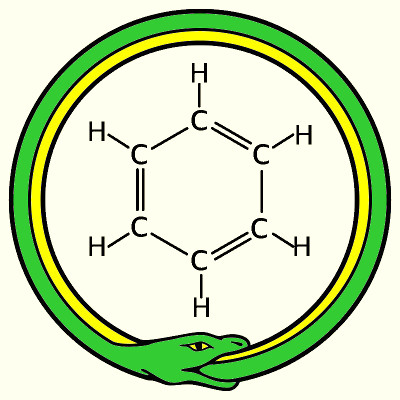 |
One can ponder the meaning of a scripture, which provides an example of the difference between thinking and pondering. When thinking about a scripture, one can consider all possible meanings, looking up the words in the original languages, and compare to other scriptures. When pondering a scripture, none of that focused busy work is done, although it has its place in doing research. When pondering a scripture the mind cleared, perhaps by thinking of erasing its "blackboard", and the focus drops down into the deep well of the heart where all is total darkness (Prov. 5:15). The question of the meaning of the scripture does not even need to be remembered because it was known already to be the question being asked. The heart is connected to the repository of all truth, which can be accessed if your question merits permission to receive the answer. This is like searching for an answer yourself rather than asking God in prayer to give you the answer.
After learning to ponder in this or a similar manner in the heart, suddenly the meaning of the scripture will appear in any of a variety of ways. For me it can an audible voice, written words, or images as in a dream. You will just "know" one meaning of this scripture, without any reasoning or logic. It is a form of guided intuition. It is the manner in which much of the new information in my articles has come to me. It is a skill worth seeking and developing, because we all have a heart.
The process need not be religious at all. Great scientific discoveries are often made when relaxing; such the discovery of the molecular structure of benzene, which came as an image to a puzzled chemist while daydreaming of a snake biting its tail.[7] Great business ideas come while playing golf.
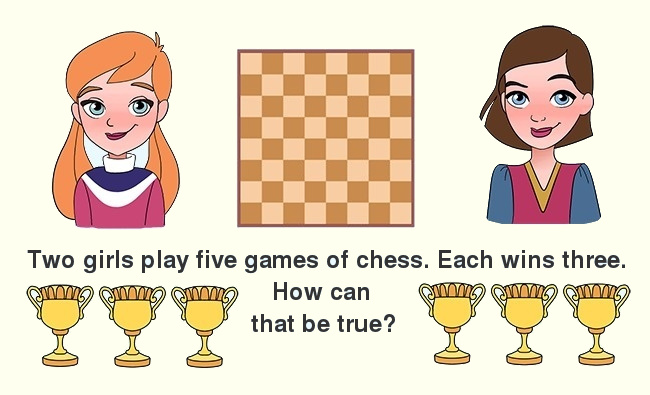 |
Is playfulness a good "childlike" (meaning positive) attribute or a bad "childish" (meaning negative) attribute? Playfulness was not listed by the angel as an attribute which adults should cultivate in order to be like little children. Should it be discarded as a waste of valuable time? Was the angel's list a starter list or was it exhaustive?
 |
Why do people generally agree that youth is wasted on the young? One article summed it up thus, "Young people are full of energy and vitality, yet they seem to squander away opportunity after opportunity to put their talents to good use."[8]
If that were true, then it would appear that God made a big mistake! What about the book proclaiming that all of the important lessons in life were learned in kindergarten?
When I taught astronomy, answer "E" was always a joke answer on my multiple choice tests. It was intended to dispel pressure, put students at ease and ultimately have them perform better on the test because of not being in hyper-stress mode. It was always rewarding to hear chuckles from the class during the test.
Let us now consider three examples of adults which have developed (or kept) some attributes of children.
 |
He wrote an autobiograhy[10] in which he recounted an example of childlike behavior, which was condemned by his colleagues as a waste of time. In the cafeteria, he liked to sailed his plastic plates to the garbage can, which appeared rather juvenile. Then he got to calculating the equations of its flights, which his peers judged to be a waste of time. He said that those equations, done strictly for fun, were an important part of what led to his Nobel Prize.
The Tracker (mentioned above) was amazed that Stalking Wolf, his octogenarian Apache mentor, was so childlike. When they planned a trip floating down a river several miles on raft they made, Tom noted that the old man was like a little child filled with excited anticipation of the trip. Tom knew he had made this trip many times and was only doing it as part of Tom's education. When Tom asked him why he was so happy, Stalking Wolf replied that every trip was totally different, with new animals and challenges.
That sage taught that every day of life should be new and different. He taught Tom to try to keep the tourist mentality, thrilled with everything being seen as if for the first time. He proposed taking a different route to work and back home every day. Greet each day as an entirely new chance to improve and do things better. All of this is part of a childlike attitude.
The Prophet Joseph Smith was well known for being childlike. After having been visited by a pastor who wanted to debate points of religion, Joseph challenged him to a contest of "pulling sticks". He needed make no pretense of being a serious preacher in order to deserve respect because he spoke truth. I would bet that he even might have splashed water on people during a baptism, much to the shock of pious observers.
Then there is the famous quote of when he was criticized for playing ball which seemed unprophet-like. He replied by asking if his critic always left his archery bow strung. The man replied that he did not, because the bow would lose its spring if always taut. Joseph replied that likewise, he needed to loosen up sometimes. This was an excellent example of a deliberate method to enter the alpha state after having been of necessity in some focused activity which often draws one into the beta state of unawareness of spiritual things.
The importance of becoming as a little child was emphasized as an often overlooked, yet essential, requirement of the Doctrine of Christ in order to enter the Kingdom of Heaven. Desirable childlike attributes were listed from scriptures and discussed. Modern scientific research into the beta and alpha states of brainwaves were correlated to the natural man and the childlike states, respectively. The fourth step of the Eternal Round, the evil Dragon, was identified as the birth of the natural man at the time a child becomes accountable for its actions. Most adults are nearly always in the beta state (natural man), thinking with their logical minds, rather than being the more relaxed and aware alpha state (childlike).
Specific methods of becoming like a little child were discussed, as well as some detailed suggestions on how to learn to ponder with the heart, rather than think with the mind.
Finally, some examples of successful adults who had become as little children were discussed. Each was eminently successful in his field, but each knew how to relax and have fun and be humble and curious about the world. Again, it cannot be overemphasized that the Savior made it very clear to his apostles that even they themselves, if they did not become as a little child, would not be able to enter the Kingdom of God!